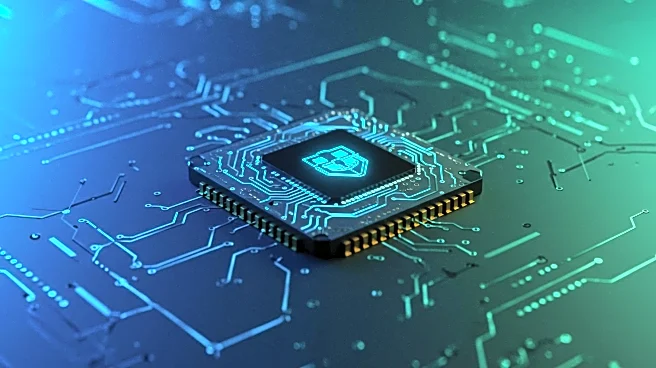What is the story about?
What's Happening?
Nvidia's chief executive, Jensen Huang, is actively engaging with Chinese officials to address security concerns related to the company's artificial intelligence chips. Recently, the U.S. government granted Nvidia permission to sell its H20 semiconductors to China, a decision that has faced opposition from national security advocates due to the ongoing technological and military competition between Washington and Beijing. In response, China's Cyberspace Administration summoned Nvidia to explain alleged 'backdoor' functions in the chips that could allow remote tracking or shutdown, based on information from U.S. AI experts. Huang, currently in Taipei, emphasized to Chinese officials that Nvidia's AI chips do not contain security back doors.
Why It's Important?
The discussions between Nvidia and Chinese officials are crucial as they reflect the broader geopolitical tensions surrounding technology and national security. The ability to sell AI chips to China is significant for Nvidia's business, given China's push for self-sufficiency in semiconductors. However, the security concerns raised by China highlight the delicate balance companies must maintain between commercial interests and geopolitical realities. The outcome of these talks could impact Nvidia's market access in China and influence the global semiconductor industry, affecting stakeholders from manufacturers to consumers.
What's Next?
Nvidia's ongoing dialogue with Chinese authorities may lead to further clarifications or adjustments in their chip offerings to address security concerns. The company might need to implement additional security measures or transparency protocols to satisfy regulatory demands. Additionally, the situation could prompt other tech companies to reassess their strategies in China, potentially influencing future U.S.-China tech collaborations and policies.
Beyond the Headlines
The situation underscores the ethical and legal challenges faced by tech companies operating in international markets. The allegations of 'backdoor' functions raise questions about privacy and data security, which are increasingly important in the digital age. This development could lead to heightened scrutiny of AI technologies and their implications for global security and privacy standards.















